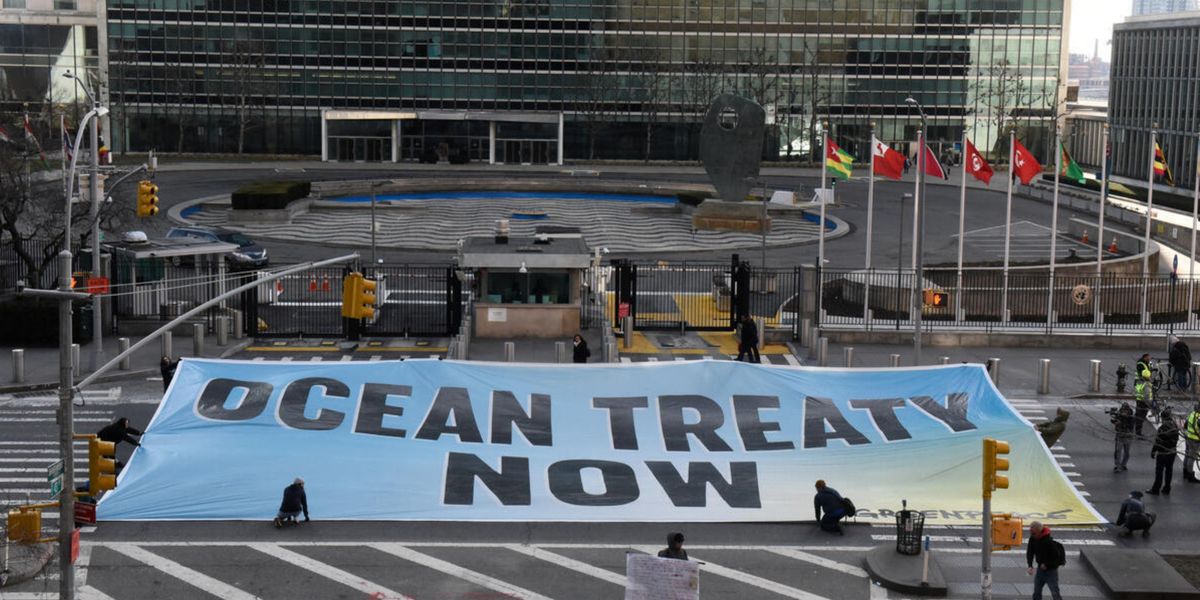
Greenpeace warned Monday that nations are "once again stalling" as they enter the final week of talks on the United Nations Ocean Treaty, a pact the environmental group says would "safeguard marine life and be the biggest conservation victory for a generation" if negotiators get it right.
A new draft of the landmark treaty "still contains major areas of disagreement," said Greenpeace, whose activists displayed a large banner supporting the treaty outside United Nations headquarters in New York City on Monday.
U.N. members are gathered inside in an effort to draft a unified agreement on the conservation and sustainable exploitation of marine ecosystems located outside national boundaries on the high seas—an area encompassing nearly two-thirds of the Earth's oceans. A previous round of talks on the treaty last year failed to produce an agreement.
According to Greenpeace:
Finance remains a key issue. Global North countries like the U.K., U.S., and European Union member states must urgently put the money on the table for capacity building and implementing the treaty. They must also resolve the mechanics of sharing financial benefits from Marine Genetic Resources. China will play a critical role in the outcome of these negotiations. China led from the front at Biodiversity COP15 in delivering the 30×30 agreement, but here it is falling behind. China, along with the Global North, must show more flexibility, or these talks will fail.
"We are now in the last week of negotiations for what we hoped would be a historic and ambitious treaty to protect the oceans and change the trajectory of life on this planet. Instead, we are once again on the brink of these talks falling apart as countries have chosen not to rise to the occasion as they quibble over minor points," Greenpeace USA senior ocean campaigner Arlo Hemphill said in a statement.
"Time is up," Hemphill added. "Negotiations must accelerate, and member states should work harder to reach compromises, keeping in mind the big picture of what this could mean for our oceans, biodiversity, and the billions of people who rely on it for their lives and livelihoods."
Laura Meller, oceans campaigner at Greenpeace Nordic, lamented that "negotiations have been going around in circles, progressing at a snail's pace, and this is reflected in the new draft treaty text."
"It is far from where it should be as we enter the endgame of these negotiations," she continued. "Negotiations must accelerate and Global North countries like the U.K., U.S., and European Union member states must seek compromises."
"China must urgently reimagine its role at these negotiations," Meller added. "At COP15, China showed global leadership but at these negotiations, it has been a difficult party. China has an opportunity to transform global ocean governance and broker, instead of break, a landmark deal on this new Ocean Treaty."
This content originally appeared on Common Dreams and was authored by Brett Wilkins.